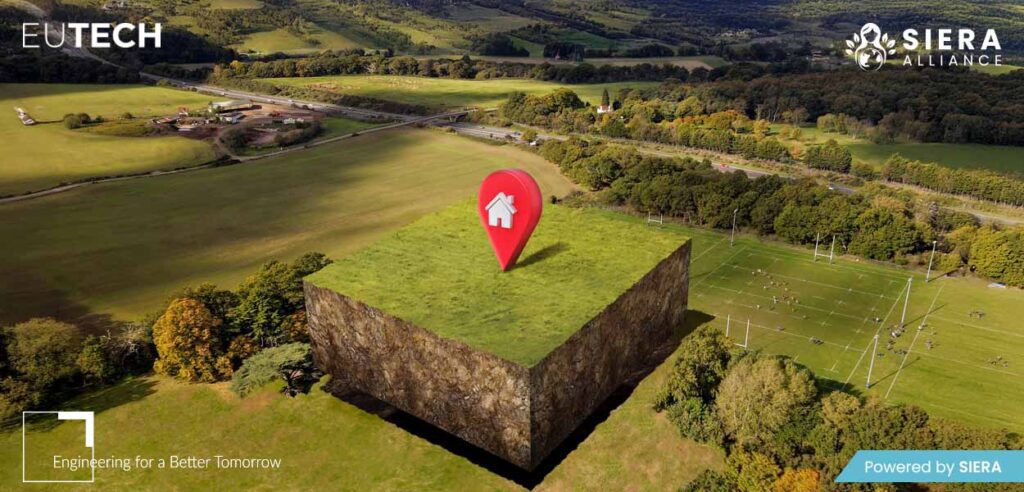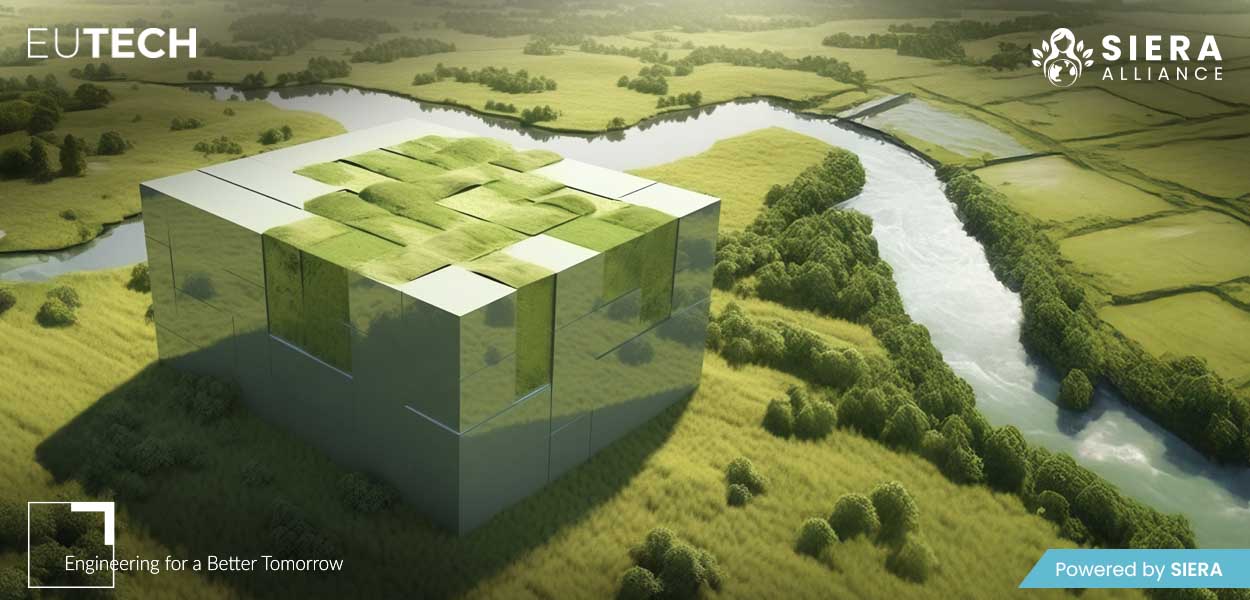Why Biodiversity Matters in Real Estate
The real estate sector plays a significant role in shaping urban environments, but it also contributes heavily to habitat destruction and biodiversity loss. With urbanization accelerating, the integration of biodiversity-focused strategies is essential for achieving sustainable urban development while meeting growing demands for eco-friendly and resilient properties.
On 24th October 2024, the EUTECH – Real Estate Council powered by SIERA Alliance hosted a webinar titled “Integrating Biodiversity into Real Estate Ecosystems.” Moderated by Dr. Igor Gladkov, the session featured keynote speaker Prachi Shahare and panelists Jack Allison and Claire Racine. The discussion centered on how real estate developers can incorporate biodiversity into their projects to create resilient, sustainable developments.
Key Challenges in Integrating Biodiversity into Real Estate
1. Habitat Destruction and Fragmentation
The real estate industry accounts for 30% of global biodiversity loss, primarily due to habitat clearing for new developments. More than 68% of artificial land cover globally is allocated for housing, intensifying biodiversity degradation.
2. Energy Consumption and Emissions
Real estate projects contribute to 40% of global energy consumption and 30% of greenhouse gas emissions. These figures underscore the urgency of adopting green building practices to reduce environmental impact.
3. Economic Viability vs. Biodiversity Goals
Balancing biodiversity conservation with profitability remains a challenge. Studies show that integrating green infrastructure can increase property values by 5-15%, yet many developers perceive initial costs as a barrier.
4. Ecological Liabilities of Contaminated Sites
Europe has approximately 5 million hectares of brownfield land with significant biodiversity restoration potential. However, the costs and complexities of remediation often deter developers.
5. Stakeholder Engagement Gaps
Effective stakeholder collaboration is often lacking. Around 80% of EU consumers prefer companies with strong environmental commitments, yet many real estate developers fail to align their projects with these expectations.

Solutions and Recommendations
The webinar emphasized actionable strategies to address these challenges:
1. Sustainable Real Estate Development
Incorporating green infrastructure, such as vertical gardens, urban forests, and eco-friendly building designs, enhances urban biodiversity while providing social, environmental, and economic benefits. Developers should adopt green building standards to ensure compliance with biodiversity-focused criteria.
2. Reclaiming Contaminated Land
Through site investigation and renaturation, developers can restore ecological value to brownfield sites, aligning projects with the EU’s Do No Significant Harm (DNSH) principle. This practice not only supports biodiversity but also enhances property value.
3. Leveraging Green Financing
Financial tools such as green bonds and sustainability-linked loans make biodiversity-focused projects financially viable by offering incentives and lower interest rates. These financing methods align with EU sustainability objectives and reduce perceived cost barriers.
4. Stakeholder Engagement
Effective engagement with local communities, investors, and regulatory bodies ensures alignment with biodiversity goals. Transparent communication builds trust and fosters support for sustainable real estate practices.
5. Advanced Technologies
Using technologies like IoT and AI for real-time biodiversity monitoring enables developers to adapt and align with global standards such as the Global Biodiversity Score and the Singapore Index.
Transformation Opportunities
Implementing biodiversity-focused strategies creates significant transformation opportunities:
| Transformation Area | Benefits | Impact |
| Enhanced Property Value | Green infrastructure increases aesthetic appeal and property value. | Properties with green features see a 5-15% higher valuation. |
| Reduced Operational Costs | Sustainable designs reduce energy consumption and maintenance costs. | Green buildings can cut energy costs by 50%. |
| Regulatory Compliance | Aligning with biodiversity standards mitigates legal risks and penalties. | Companies reduce biodiversity-related compliance risks by 30%. |
| Improved Public Image | Projects aligned with biodiversity goals enhance brand reputation. | Companies gain a 20% increase in consumer trust. |
| Investor Attraction | Green financing attracts ESG-conscious investors. | Access to green bonds facilitates project funding. |

Best Practices for Biodiversity Integration
- Adopt Comprehensive Biodiversity Plans: Develop detailed plans aligned with green real estate standards to protect and enhance biodiversity throughout project lifecycles.
- Engage Experts Early: Collaborate with biodiversity consultants and environmental planners during the design phase to ensure alignment with biodiversity objectives.
- Promote Education and Awareness: Raise awareness among stakeholders about the benefits of biodiversity-friendly practices to garner broader support.
- Monitor and Report Biodiversity Impacts: Use global biodiversity measurement standards to track and communicate project impacts effectively.
Upcoming Events and Opportunities
Stay updated on future events hosted by SIERA Academy. Explore the SIERA Alliance Event Calendar for insights into biodiversity and sustainability strategies in real estate. Join us in building a greener and more sustainable urban future.
Conclusion: A Biodiversity-Centric Real Estate Vision
Integrating biodiversity into real estate projects is a transformative approach that benefits both the environment and the industry. By adopting nature-based solutions, leveraging green financing, and engaging stakeholders, developers can lead the way in sustainable urban development.
Collaborating with organizations like SIERA Alliance and EUTECHempowers companies to implement impactful solutions that benefit the environment, communities, and stakeholders.
To learn more about how SIERA Alliance can support your journey toward sustainable real estate, visit our website. Join us in building a responsible future for urban development.








